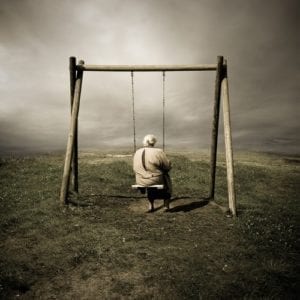Dead Grandmother Sued by the Recording Industry
Do you remember when places like Napster where people shared music illegally were all the rage? Back in the early 2000s, long before options like Spotify and Amazon Music, people would download music from the Internet through these file sharing sites, and it was naturally a big concern to the recording industry. They and their artists relied on the money made from album sales as a part of their income, and to determine how popular their music was, which could lead to further record deals. The Recording Industry Association of America decided to launch lawsuits against those they felt were “big players” in the field of stealing music.
In 2005, they decided that they had had enough of mega-pirate Gertrude Walton, an 83-year-old woman living in Beckley, WV, who was deceased at the time of the suit. So, they sent Gertrude a stern warning letter. Of course, she could not read it since she was dead. Her daughter received the letter and told them that her mother, Gertrude, did not like or use computers. She even sent along the death certificate. Even though she sent the death certificate to them, a week later, they filed the suit.
When the media caught wind of what was going on, the RIAA claimed that there was a mix-up and that it takes months to get the right information and to initiate legal actions. They also said that they would dismiss their case… against the dead person. This was very kind of them.
Another Lawsuit
The Recording Industry Association of America does not play around, and they are certainly not ageist in any way. In 2003, for example, they sued a 12-year-old girl who had some music on her computer’s hard drive. Young Brianna LaHara did not realize that she was doing anything wrong, as her mother paid for a service called Kazaa, which was a legal music subscription service.
The honors student was one of 261 lawsuits that the RIAA filed at the time, and there were fears from her working-class parents that she could be charged up to $150,000 for each of the songs. Instead, her parents were made to pay a $2,000 fine, which is still steep for a child who did not know what she was doing.
Fortunately, times are changing somewhat, and these types of lawsuits tend to be less common – although they are still filed. There are other ways that people can enjoy and stream the songs they love by paying a small fee or using options that support ads. The same is true for movies and television shows.
However, there will always be some out there who are stealing vast amounts of content and who do need to be brought to justice, as with enough of these types of practices, it can hurt the creators. Of course, those who should be brought before the law are probably not a deceased grandmother or a 12-year-old child.

